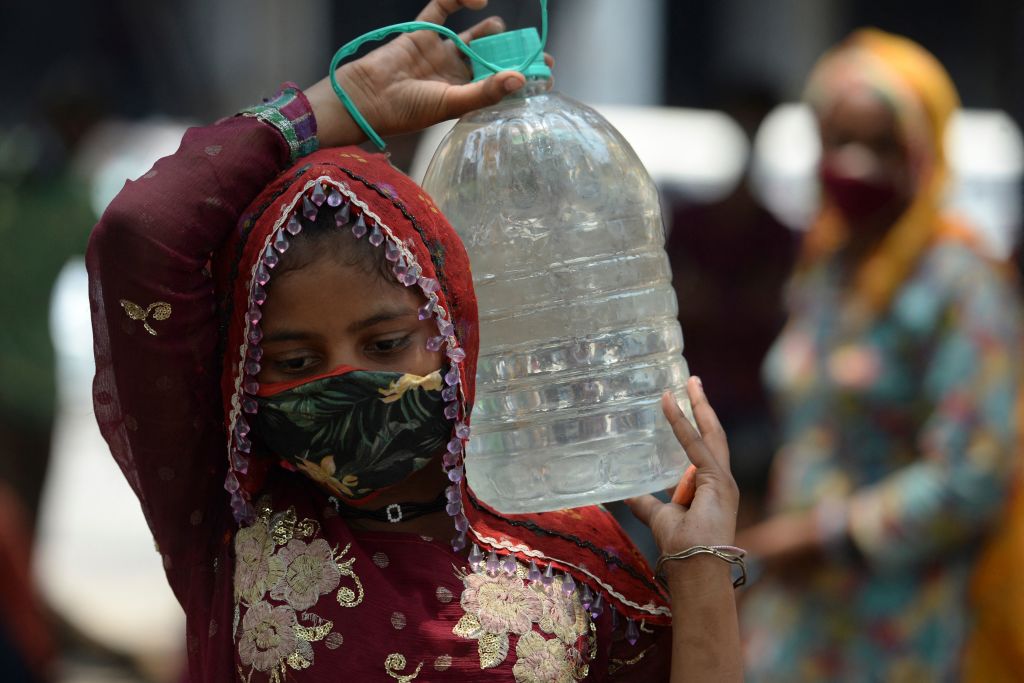It’s noon and Asha Mutha, 53, has just finished cooking lunch. She wipes the sweat off her forehead, pushes the thick frames of her spectacles up the bridge of her nose, and tucks the pink viscose sari around her hip.
The smell of freshly prepared lentils, rice, sautéed cabbage, peas and chapatis wafts through the three-bedroom flat shared by her six family members spanning four generations. Her daughter-in-law, Payal Mutha, has helped her prepare this routine feast. In an adjacent bedroom, Kamala, Asha’s octogenarian mother-in-law, naps under a ceiling fan to escape the relentless heat of the perennial Chennai summers.
The two men of the house — Asha’s husband and son — are away at work, despite the rising number of COVID-19 cases in the city.
“There are at least five confirmed COVID cases amongst our neighbors,” Asha says with concern, but there’s no hint of panic. The acceptance largely comes because Asha, her husband and Kamala already tested positive last year.
Their neighborhood, where commercial establishments and housing blocks jostle for space, is densely packed. Cars can barely drive down the streets overshadowed by multi-storied apartments. Social distancing is tough.
“My husband and I isolated ourselves at home,” Asha says. “But my mother-in-law was hospitalized. She used to beg us over video calls to bring her home.”
Kamala has lived with mental health issues for four decades, she says. But a hospitalization in the COVID-19 ward last year proved catastrophic. She recovered from the coronavirus, but her mental health worsened.
“After she returned, we consulted with seven doctors in one month,” Asha says with a shudder. “Nothing worked. She constantly had bouts of breathlessness, anxiety, panic attacks.”
Now, the family filters what is shared with Kamala. News of COVID-19 and the deaths of relatives and friends — and there are many — is left at the doorstep.
In the 33 years of her married life, Asha has learned a host of skills required of a healthcare giver. “I am a mini-nurse,” she says, with a laugh, listing duties like organizing and administering Kamala’s medications and nebulizer, checking her vitals every few hours, treatment and care plans, and having nurses and doctors on speed dial. “Women learn.”
For emergencies, there’s a bell installed by Kamala’s bedside. At least twice a week, the electronic beep sounds. Asha drops what she is doing to check on Kamala. Sometimes it’s nothing. But often it’s an onset of a serious panic attack.
Their only downtime, in between chores and caretaking and homeschooling, is an hour-long afternoon nap. The humdrum of endless housework and an inability to control events beyond their threshold has changed their perspective.
Last year, when family members fell ill from COVID-19 and needed constant care, Payal fainted on the bathroom floor from exhaustion.
“Now that fear is gone,” she says. “All we can do is be careful and take recommended precautions.”
Asha agrees. The paranoia unleashed by the pandemic in the first wave has been replaced by fatalism of the second wave.
“What has to happen will happen,” Asha says, with a shrug.


 Mahima Jain
Mahima Jain
